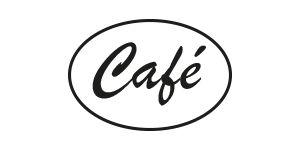Maybe a controversial title, surely someone is using Open Banking? Yes, 2 million people in the UK at the last count but that is among over 51 million adults, less than 4%.
Open Banking has only been available since March 2020? Not quite, most payment accounts in the UK (cira 85%) are held by “CMA9” Banks, which have provided a form of Open Banking interface since January 2018.
Some banks in the UK which went to great lengths to implement Open Banking interfaces haven’t seen any Open Banking activity.
In a market where all payment institutions had to provide Open Banking interfaces and the number of Fintechs providing Open Banking solutions to consumers, why is uptake currently so low?
Generation Issue?
Could this be a generation thing? Those that are not from generations termed “digital natives” may not be attracted to the idea of utilising a service which uses an Open Banking mechanism to collect account data or initiate payment.
The number of adults in the UK classed as being from “digitally native” generations is about 18 million people, still quite a bit more than the current 2 million users but higher as a potential percentage. (Touch over 11% but we don’t have the age breakdown of the 2 million users, so this is not directly comparative).
Trust?
Could the issue be trust?
Trust in Banking was eroded during the 2008 financial crisis and all participants in the Open Banking ecosphere are subject to Payment Services Directive Two (PSD2) and General Data Protection Regulation (GDPR). Could it be the people still trust banks more than these new entities?
Is it a matter of keeping a “reduced surface”, “I know who is to blame if something goes wrong because I keep my banking simple”?
Is it as simple as cyber security awareness and being cautious, “don’t share your details”?
Single vs Multi banked?
Open Banking can bring an aggregate view of all your accounts and make it more seamless to initiate payments from those accounts?
An aggregate view may be great, although how many payment accounts does the average person have? Although a person may have a single current account, they may have several credit cards which could also be combined in this aggregate view.
Are there that many people who would be classed as “Multi-banked”? If you aren’t, surely the banks’ digital services (online banking / app) accommodates your needs?
If you are looking to initiate payment, what are the incentives in not using an account transfer from your bank or Debit / Credit / Charge card for your purchases?
Open Banking Disparity and Coverage?
As covered a previous article (https://www.cafeassociates.co.uk/2020/09/21/what-is-open-banking/) there are differences in Open Banking implementations globally. The UK (FCA) and EU (EBA) are looking into “Open Finance”, basically what Open Banking should be but hadn’t quite realised.
Savings accounts, ISAs, Mortgages and other non-payment accounts, these types of accounts are generally unavailable via an Open Banking mechanism but are most likely the products which classify someone as “Multi Banked”. Because of this, many Building Societies in the UK do not have Open Banking interfaces.
Although Open Banking Implementation Entity in the UK (Open Banking UK) had arguably developed the most comprehensive and “standardised” interface standard in Europe it was not mandatory for Payment Institutions outside of the CMA9 to implement. Even implementations of OBIE standards differ slightly between institutions. This has created integration complexity for Third-Party Payment Providers (TPPs, Fintechs) which prioritise their integration efforts with organisations deemed to be most demanded by potential customers.
This strategy has merit, although someone who is multi banked is likely to have an account with one of the larger banks, they may find they cannot access payment accounts with smaller banks because the integration has not yet been made by that TPP.
Lack of Applicable Products, Investment, Participants or Awareness?
Where are all the big players, you know the digital giants, where is the investment, how do you even make money off this?
Is it that offerings in the market just aren’t innovative enough to be useful?
Do people even know about the products in the market, the potential benefits?
All good questions, it’s hard to have a model that makes money directly from consumers, therefore models have revolved around either saving money in payment initiation by avoiding card transaction fees and account aggregation to help sell products which may be of interest based on spending patterns.
I use an account aggregation app, it displays my balances, shows spending behaviours, gives insights and potential supplier recommendations but because my main current account is unavailable due to no integration with the bank which holds the account, the information therefore the behaviours, insights and view to the flow of my money is massively incomplete, therefore the product matches are unlikely to attract me, TPP doesn’t make any money. (Although they may be selling those insights to some other party, even if they are wrong).
But for the reasons under “Disparity and Coverage”, has the potential usefulness being capped, is there a ceiling to innovation?
Just getting started, is it just too early?
Whether you see this has 6 months or almost 3 years into the journey, is it just a bit too early to evaluate success? I and many others would argue yes, it is but there does need to be regulatory and market change to fully realise the potential of Open Banking and increase its value among more general users of financial products.
Are you a Fintech looking to leverage the power of Open Banking, a Bank looking to monetise offerings to third parties or interested in the future of the finance sector? Please feel free to reach out for a conversation.
Richard Smith – Design Partner at Café Associates.
Previous article “What is Open Banking” can be found at https://www.cafeassociates.co.uk/2020/09/21/what-is-open-banking/

